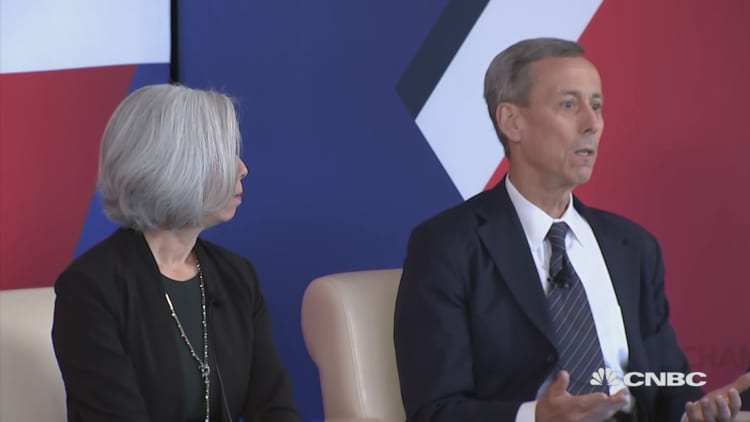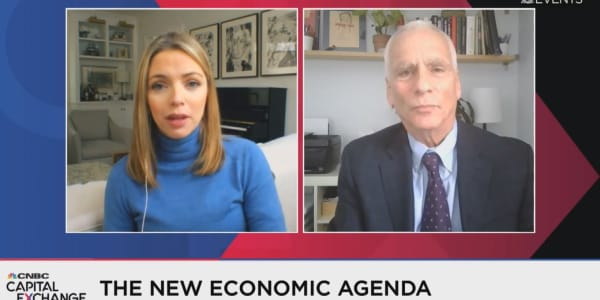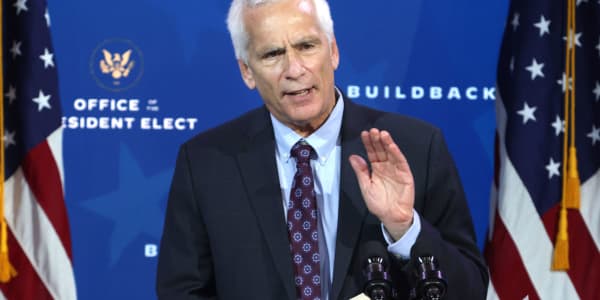
President Donald Trump's restrictions on Chinese telecom giant Huawei are comparable to "murder," the president of the U.S.-China Business Council said Tuesday.
The administration blacklisted Huawei last month amid the escalated trade war, effectively halting its ability to purchase American-made chips and forcing U.S. companies to cut ties with the Chinese giant.
"If we want to keep it out of our network, it's easy to do. Let's just ban them. But putting them on the entity list and prohibiting U.S. companies from dealing with them, it's more like murder. It's trying to put an end to them," said Craig Allen, president of the council, at CNBC's Capital Exchange summit. The council represents about 200 American companies that do business with China.
He added, "If a stranger knocks at your door, you don't have to let them in, but do you have the right to take a gun and shoot them?"
The trade conflict between the world's two largest economies has continued to intensify after both sides slapped tariffs on billions of dollars worth of each other's goods. China has threatened to cut off its rare earth mineral supply to the U.S. and reportedly stopped ordering U.S. soybeans.
"We are paying a short-term cost but the long-term cost would be yet greater," Allen said. "Will China not invest in soybeans in Brazil, Argentina and Ukraine? Of course they will. Not everything is a transaction. We have to consider this over the long term. ... At the end of the day, we have to deal with the Chinese if we want to get there."
On the same panel, Thea Lee, president of the Economic Policy Institute, strongly condemned Trump's use of tariffs in negotiating a trade deal.
"Trump is using that tool (tariffs) too haphazardly, and in a way he's not sending clear messages to either business communities or to trading partners," Lee said at the summit. She added, "He's burning bridges with a lot of trading partners, which is going to cost us over the long run."
"If a tariff is used strategically and surgically to address an unfair trade practice, you have this short-term disruption and short-term inconvenience and higher prices along the way, but ultimately in service of addressing a problem. That's what I don't see this current administration doing … it's more like a battle of egos and a battle of wills," she added.
Trump has not only used tariffs in the trade war with China, but he also threatened to slap tariffs on Mexican imports unless that country took action to control migration across the border with the U.S. The Mexico tariffs were eventually avoided after the U.S. and Mexico reached an agreement on immigration issues.
For more on the convergence of business and politics, join CNBC at our upcoming Capital Exchange summits in Washington DC (for candid conversation featuring business and government leaders exploring how they can work together to spur growth).






